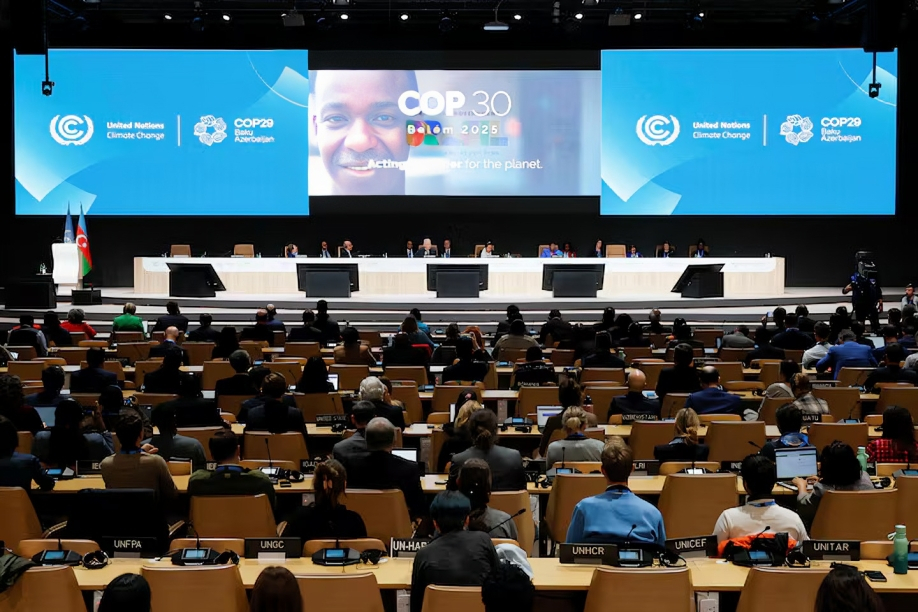Rwanda has once again cemented its position as a leader in climate action. At the recently concluded 29th United Nations Climate Change Conference (COP29) in Baku, Azerbaijan, Environment Minister Dr. Valentine Uwamariya delivered a passionate address urging global leaders to take collective action against climate change.
Speaking to delegates from around the world, Uwamariya highlighted the urgent need for high-emitting nations to fulfill their commitments under the Paris Agreement. She also emphasized the growing toll climate change is taking on developing countries, including Rwanda.
“Climate change could cost Rwanda 5 to 7 percent of GDP annually by 2050,” Dr. Uwamariya said, citing findings from a recent Country Climate and Development Report. Rwanda, she added, needs $11 billion to enhance resilience and reduce greenhouse gas emissions by 38% by 2030.
Dr. Uwamariya used the platform to reaffirm Rwanda’s commitment to achieving climate neutrality by 2050. She announced ongoing revisions to Rwanda’s Nationally Determined Contributions (NDCs) with plans to increase current targets, describing the move as essential to protecting the country’s economic and environmental future.
“We are raising the bar, not just for ourselves but to set an example for the global community,” she said. Rwanda’s consistent delivery on its climate pledges has earned it a reputation as a model for other nations, particularly in Africa.
Yet, Dr. Uwamariya was clear about the obstacles standing in the way of progress, particularly when it comes to financing.
The Minister highlighted the disparities in climate finance, pointing out how unsustainable debt and high capital costs disproportionately hinder developing nations. She called for urgent action to establish a collective and fair global climate finance goal, tailored to the needs of vulnerable countries.
“The quality of finance is particularly critical for African countries. Unsustainable debt, high capital costs, and the increasing use of non-concessional finance instruments hinder our ability to achieve climate and development goals,” Minister Uwamiriya said.

She also pushed for the operationalization of the Loss and Damage Fund, which is designed to help developing nations recover from climate-related disasters. Public grant financing, she argued, should take precedence over loans to ensure fairness and equity in climate action.
Dr. Uwamariya’s address was a call to action for high-emitting nations to step up efforts to reduce emissions and adopt clean energy technologies. She also emphasized the importance of international collaboration in sharing knowledge, experiences, and technologies to build a resilient, low-carbon future.
“Climate action must be collective,” she told delegates. “That means working together to share knowledge, experience, and the technologies required to build a greener future.”
As COP29 concluded, Rwanda’s message emerged as a rallying cry for ambitious and balanced climate action. Dr Uwamariya left no doubt about Rwanda’s readiness to work with the international community to implement effective solutions that protect the planet for future generations.
“Let us seize this opportunity to reinforce our commitment to a sustainable, resilient, and low-carbon future,” she said, closing her address with a clear and urgent plea for unity and action.
With its bold climate targets and a proven track record, Rwanda continues to lead by example—calling on the world to move from promises to tangible action.
